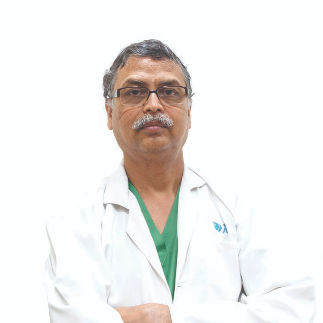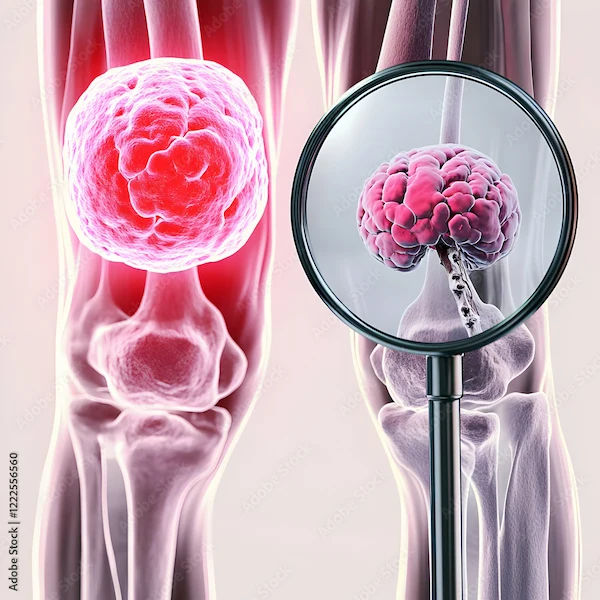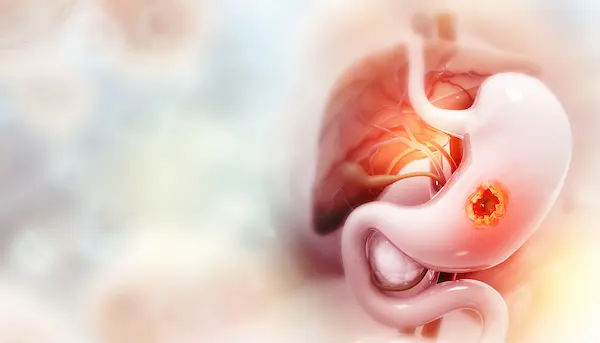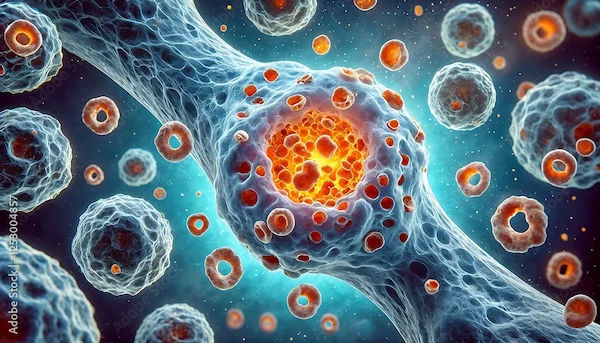Carcinoid Syndrome Overview and Management
Know about the carcinoid syndrome, what it is, symptoms, causes, risk factors, diagnosis, management and treatment of carcinoid syndrome.

Written by Dr. M L Ezhilarasan
Reviewed by Dr. Rohinipriyanka Pondugula MBBS
Last updated on 13th Jan, 2026

Introduction
Carcinoid syndrome is a rare condition caused by certain types of neuroendocrine tumours (NETs), known as carcinoid tumours. These tumours release excess hormones, primarily serotonin, into the bloodstream, leading to a range of symptoms. While carcinoid syndrome is uncommon, understanding its signs, causes, and management can help patients take control of their health and seek timely medical care.
What Is Carcinoid Syndrome?
Carcinoid syndrome occurs when a carcinoid tumour—usually found in the digestive tract (small intestine, appendix, or rectum) or lungs—secretes large amounts of hormones like serotonin, bradykinin, and histamine into the bloodstream. Normally, the liver breaks down these hormones before they cause any issues. However, if the tumour spreads to the liver or grows large enough, these hormones enter the bloodstream directly, leading to carcinoid syndrome.
Consult an Oncologist for Personalised Advice
Symptoms of Carcinoid Syndrome
The symptoms of carcinoid syndrome can vary, but often include:
- Flushing – Sudden redness and warmth in the face and neck, sometimes triggered by stress, alcohol, or certain foods.
- Diarrhoea – Frequent, watery stools that can lead to dehydration and malnutrition.
- Wheezing or shortness of breath – Due to bronchial constriction caused by excess serotonin.
- Heart problems – Long-term exposure to serotonin can damage heart valves, leading to murmurs or heart failure.
- Abdominal pain and cramping – Often due to intestinal blockages caused by tumour growth.
- Skin changes – Some patients develop thickened, discoloured skin on the face (pellagra-like symptoms).
These symptoms can come and go, making them easy to dismiss at first. If you experience persistent or worsening symptoms, consult a doctor.
Causes and Risk Factors
Carcinoid syndrome is caused by hormone-secreting neuroendocrine tumours. Risk factors include:
- Family history – Rarely, genetic conditions like Multiple Endocrine Neoplasia Type 1 (MEN1) increase the risk.
- Age and gender – More common in adults over 50, with a slightly higher incidence in women.
- Tumour location – Carcinoid tumours in the small intestine, appendix, or lungs are more likely to cause the syndrome.
Diagnosis
If carcinoid syndrome is suspected, doctors may recommend:
1. Blood and urine tests – To check for high levels of serotonin or its byproducts (5-HIAA).
2. Imaging tests – CT scans, MRIs, or PET scans to locate tumours.
3. Biopsy – A small tissue sample is taken to confirm the diagnosis.
Early detection improves treatment outcomes, so don’t hesitate to seek medical advice if you notice concerning symptoms.
Management and Treatment
While there’s no cure for carcinoid syndrome, treatments focus on controlling symptoms and slowing tumour growth.
Options include:
1. Medications
- Somatostatin analogues (Octreotide, Lanreotide) – Reduce hormone release and relieve symptoms like flushing and diarrhoea.
- Serotonin blockers (Telotristat ethyl) – Help control diarrhoea in patients not responding to somatostatin analogues.
- Other symptom-specific drugs – Antihistamines for flushing, bronchodilators for wheezing.
2. Surgery
If the tumour is localised, surgical removal may be possible. For liver metastases, procedures like embolisation (blocking blood supply to tumours) or radiofrequency ablation (destroying tumours with heat) may help.
3. Dietary and Lifestyle Changes
Certain foods and activities can trigger symptoms. Consider:
- Avoiding alcohol, spicy foods, and aged cheeses (high in tyramine, which can worsen flushing).
Eating smaller, frequent meals to ease digestion. - Staying hydrated to manage diarrhoea.
- Managing stress through relaxation techniques like yoga or meditation.
4. Regular Monitoring
Since carcinoid tumours can grow slowly, ongoing check-ups with blood tests and scans are essential to track progress.
When to See a Doctor?
If you experience:
- Unexplained flushing, diarrhoea, or wheezing
- Persistent abdominal pain
- Unexplained weight loss
It's important to consult a specialist. Early intervention can significantly improve quality of life.
Final Thoughts
Living with carcinoid syndrome can be challenging, but with the right treatment and lifestyle adjustments, many patients lead fulfilling lives. If you are experiencing symptoms, don’t delay, reach out to a healthcare provider for proper evaluation and care.
Consult an Oncologist for Personalised Advice
Consult an Oncologist for Personalised Advice

Dr. Amit Choraria
Surgical Oncologist
18 Years • MBBS, MS (Surgery) Fellow, Surgical Oncology, Tata Medical Center (FSO) Fellow, European Board of Surgery (Surgical Oncology) (FEBS) Fellow, Minimal Access Surgery (FMAS) Fellow, Indian Association of Gastrointestinal Endosurgeons (FIAGES) UICC Fellow, Royal Marsden NHS, London, UK Visiting Scholar, Plastic Reconstructive Surgery, CGMH, Taiwan Fellow, Robotic Surgical Oncology, Vattikuti Foundation, USA
Kolkata
Apollo Multispeciality Hospitals , Kolkata, Kolkata
(75+ Patients)

Dr. Rupam Manna
Radiation Specialist Oncologist
7 Years • MBBS MD(RADIO THERAPY), CCEBDM
Barasat
Diab-Eat-Ease, Barasat

Dr. Sanchayan Mandal
Medical Oncologist
17 Years • MBBS, DrNB( MEDICAL ONCOLOGY), DNB (RADIOTHERAPY),ECMO. PDCR. ASCO
Kolkata
MCR SUPER SPECIALITY POLY CLINIC & PATHOLOGY, Kolkata

Dr. Praveen Kumar Garg
Surgical Oncologist
26 Years • MBBS, M.S.(Gen.Surg.), M.Ch.(OncoSurg.)
Delhi
Apollo Hospitals Indraprastha, Delhi
(50+ Patients)

Dr. Gopal Kumar
Head, Neck and Thyroid Cancer Surgeon
15 Years • MBBS, MS , FARHNS ( Seoul, South Korea ), FGOLF ( MSKCC, New York )
Delhi
Apollo Hospitals Indraprastha, Delhi
(25+ Patients)
Consult an Oncologist for Personalised Advice

Dr. Amit Choraria
Surgical Oncologist
18 Years • MBBS, MS (Surgery) Fellow, Surgical Oncology, Tata Medical Center (FSO) Fellow, European Board of Surgery (Surgical Oncology) (FEBS) Fellow, Minimal Access Surgery (FMAS) Fellow, Indian Association of Gastrointestinal Endosurgeons (FIAGES) UICC Fellow, Royal Marsden NHS, London, UK Visiting Scholar, Plastic Reconstructive Surgery, CGMH, Taiwan Fellow, Robotic Surgical Oncology, Vattikuti Foundation, USA
Kolkata
Apollo Multispeciality Hospitals , Kolkata, Kolkata
(75+ Patients)

Dr. Rupam Manna
Radiation Specialist Oncologist
7 Years • MBBS MD(RADIO THERAPY), CCEBDM
Barasat
Diab-Eat-Ease, Barasat

Dr. Sanchayan Mandal
Medical Oncologist
17 Years • MBBS, DrNB( MEDICAL ONCOLOGY), DNB (RADIOTHERAPY),ECMO. PDCR. ASCO
Kolkata
MCR SUPER SPECIALITY POLY CLINIC & PATHOLOGY, Kolkata

Dr. Praveen Kumar Garg
Surgical Oncologist
26 Years • MBBS, M.S.(Gen.Surg.), M.Ch.(OncoSurg.)
Delhi
Apollo Hospitals Indraprastha, Delhi
(50+ Patients)

Dr. Gopal Kumar
Head, Neck and Thyroid Cancer Surgeon
15 Years • MBBS, MS , FARHNS ( Seoul, South Korea ), FGOLF ( MSKCC, New York )
Delhi
Apollo Hospitals Indraprastha, Delhi
(25+ Patients)




